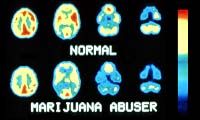Addiction
Is It Time to Moderate Your Substance Abuse?
Are you paying too big a price?
Posted April 25, 2014

Of course, legal drugs such as alcohol and tobacco are dangerous, but the big growth in is marijuana. With pot legal in Colorado and Washington and the media full-court pressing to encourage national legalization, it’s not surprising that substance abuse is increasing. According to U.S. government estimates, domestic marijuana production, between 1981 and 2006 increased tenfold! Lest you think it stopped there, since 2008, heavy marijuana use among teens is up 80 percent. Meanwhile pot’s potency has, in the past two decades, more than tripled.
Ironically, this is occurring at the same time as the evidence mounts for marijuana being far more dangerous than we thought. Pot appears to be a true killer—the new tobacco.
Just in the past month, the following were published:
- A study published in the Journal of the American Heart Association finds that marijuana causes heart attacks and strokes, even among the young.
- A Harvard/Northwestern study finds that even casual users suffer significant brain structural changes, affecting motivation and emotions. That confirms what many of us have long suspected but we didn’t think casual use was so dangerous.
- A Mount Sinai School of Medicine study found it hurts brain development in fetuses.
- All that on top of a mountain of scary data reported—not by some conservative group—but by the Obama Administration.
Substance abuse is far from a victimless crime: Co-workers and family members of substance abusers’ lives are often hurt by the abuse. Kevin Sabet, former Obama administration drug abuse advisor, reported on CNN that since legalization in Colorado, a pre-employment drug testing firm reports a 44 percent increase in the number of job applicants who tested positive for marijuana.
Then there are the thousands of people maimed and killed in substance-abuse-caused vehicle accidents every year. A study by the National Highway Traffic Safety Administration found that 18 percent of drivers in fatal accidents tested positive for a non-alcoholic mind-altering drug, mainly marijuana. A Columbia University study found almost twice as many drivers in fatal car accidents tested positive versus a control group.
Is it worth the price?
Especially in today’s tough times, many people crave “a little something” to cope with life’s stresses. That’s understandable. And it may be easier and more convenient to get drunk or high than, for example, to take a hike and be one with nature. If your life sucks, you figure, “What the hell. Let me dull the pain.”
But just maybe all this new evidence plus how substance abuse has affected your professional and/or personal life is making you sick and tired of being sick and tired.
Is it time to try—perhaps for the umpteenth time—to moderate your use or maybe even quit at least for a while to see whether you can replace drugs with some other recreation or stress reducer?
Some thoughts on how to make cutting down easier
Some people are wise to go cold-turkey. That way they don’t have to decide each time, “Should I or shouldn’t I?”
But many others prefer moderation, both because it allows the option to get high when they really need it and, by not doing drugs some of the time, they may not as as badly damage their brain, heart, and, if pregnant, the baby.
If the main reason you abuse drugs is for recreation, is there something easy you could substitute? A walk? A bath? A chat with a friend? Cook something fun? Read? Work on your match.com ad? Even TV and video games may be better for you and perhaps more entertaining than that drug.
If the main reason you abuse a drug is stress reduction, is there a way to reduce your stress? Do you need to change jobs or bosses? Gain more skill or do a better job on the job so you get your boss off your back? If a family illness is getting you down, there’s only so much you can do. If you can, back off a bit. For example, should you try harder to get another family member, perhaps one with more bandwidth, to take on more of the responsibility?
I am well aware that cutting down, let alone stopping, isn’t easy but I hope this article may help a bit. For more help, you can contact the Substance Abuse and Mental Health Administration’s National Helpline: 1-800-662-HELP. It provides 24-hour free and confidential treatment referral and information. Or visit its website: www.samhsa.gov/treatment/natHelpFAQs.aspx.
Marty Nemko was a drug counselor in the New York City public schools. More recently, he was named “The Bay Area’s Best Career Coach” by the San Francisco Bay Guardian and he enjoys a 96 percent client-satisfaction rate. In addition to the articles here on PsychologyToday.com, many more of Marty Nemko's writings are archived on www.martynemko.com. Of his seven books, the most relevant to readers of this blog is How to Do Life: What They Didn’t Teach You in School. Marty Nemko's bio is on Wikipedia.




